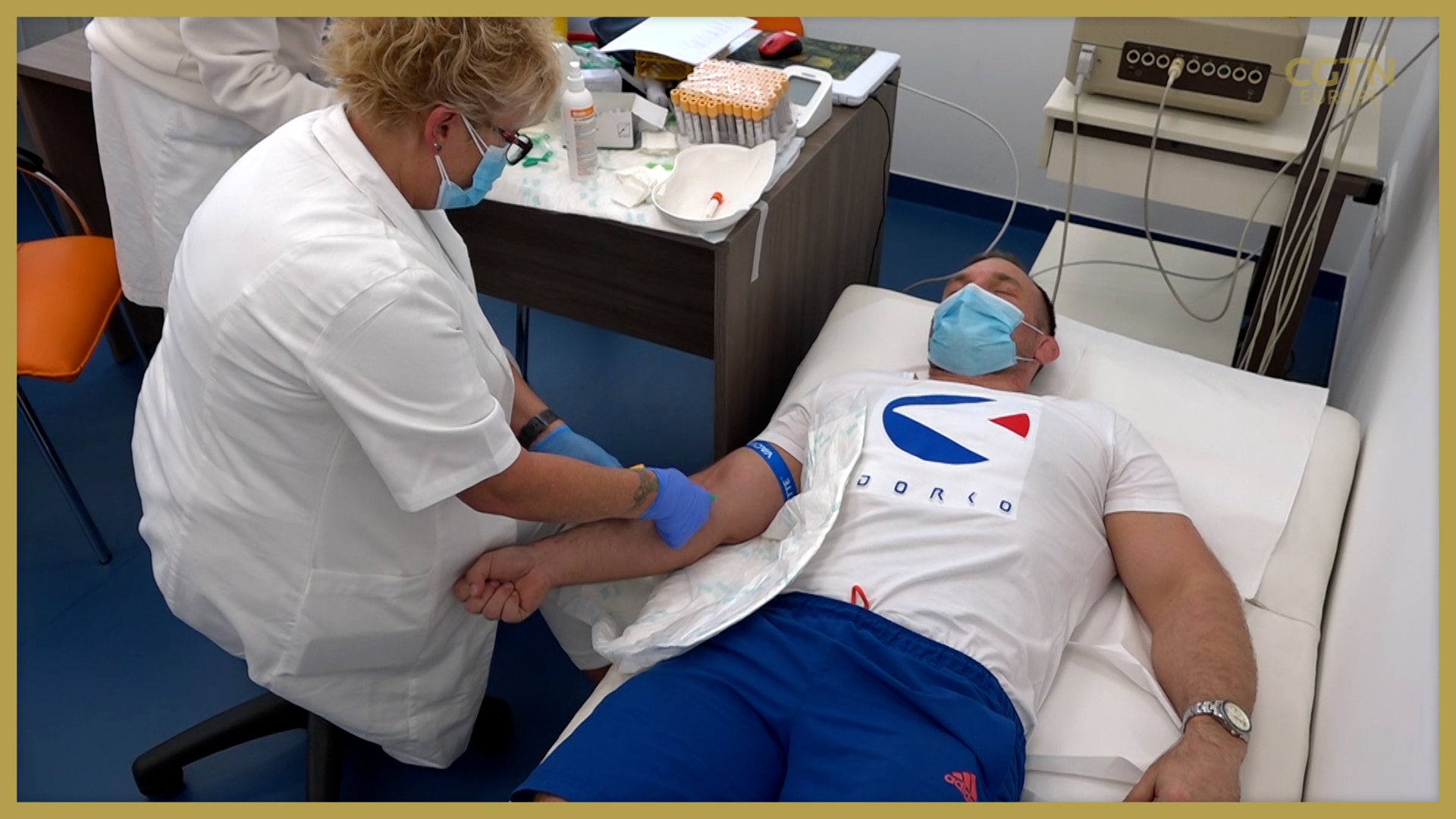02:56

Hungary has enlisted the help of elite athletes as it joins the race to harvest antibodies from COVID-19 survivors – in a bid to help critically-ill patients. A number of countries have begun experimentally treating patients with convalescent plasma therapy, a century-old practice whereby plasma from a recovered person is transfused into the blood of a patient.
Hungarian athletes, including Olympians, are involved in the trials. Thirteen elite athletes, including wrestlers and swimmers, tested positive for COVID-19 after returning from training camps in Europe, or sport scholarships at overseas universities.
"When this started evolving in Europe, this virus, the university closed down, they closed all spring sports, so we had to leave. I got home and I got infected, on the plane most likely," said Daniel Sos, 22, a Hungarian team swimmer.
Another 20 athletes are suspected to have had the virus, but were not tested at the time. The group of 30 elite athletes donated their blood plasma for a clinical study being run by Semmelweis University in Budapest.
Among them is world champion in 200m butterfly and Olympic medallist Boglarka Kapas.
"If somebody has already recovered from the virus and is able to give blood, then they should do it," Kapas said. "This is a great help for research."
Convalescent plasma treatment was used on Ebola, SARS and MERS patients. It's based on the evidence that people who have recovered from a viral infection still have antibodies in their blood that fight off the virus. But doctors stress that they don't have a cure for COVID-19 just yet.

Boglarka Kapas donates blood to help coronavirus antibody research. Hungarian Swimming Association
Boglarka Kapas donates blood to help coronavirus antibody research. Hungarian Swimming Association
Zsombor Lacza, who is heading the clinical study in Hungary, said their initial findings were "a bit disturbing."
Lacza told CGTN: "We have already screened around 150 patients, tested quite a few of them, and it seems that although they have recovered from the virus, they don't necessarily have a high total of neutralizing antibodies, which means they don't have any defence against a new virus infection."
He says a wider number of samples are needed in order to understand how many recovered patients carry antibodies.
Chinese doctors published a study in late March which showed that after two weeks of plasma therapy treatment, three out of five critically-ill COVID patients were able to be moved off ventilators. The authors said the small sample size meant they couldn't provide a definitive answer on the effectiveness of the treatment and that clinical trials are needed.
But Lacza is optimistic. "This kind of therapy has been around for about 100 years," he said. "We know it works, the only question is exactly how well it works, who is the right patient and who is the right donor."
And he believes the athletes are a useful sample to study.
"Most of these guys have been exposed to the virus in the Mediterranean – Italy and Spain – in the early spring, where training camps are held," Lacza said. "It's important to learn, six to eight weeks later, what their immunity is."
He hopes the publicity from the high-profile athletes donating plasma will encourage other people who have recovered from COVID-19 to come forward and also donate.
Meanwhile, athletes like Daniel Sos are happy to help.
"You know the thing is, every morning they give statistics on how many people die, and I've found it terrible, like they just talk about people as numbers, and I want no one to die anymore," he said.
From Friday, Hungary begins testing a representative sample of the population – 18,000 people across the country. Experts hope that gaining a clearer picture of the infection rate will help authorities decide the timing for reopening the economy and gradually lifting restrictions.